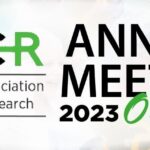The 2023 American Association for Cancer Research (AACR) Annual Meeting was held in Orlando, USA, from April 14 to 19, 2023. Every year, the AACR Congress reports numerous clinical, basic, and translational studies on cancer, especially innovative therapies in the preliminary phase I/II research stages. At this year’s AACR conference, three clinical trials were reported in the lymphoma field, including anti-CD19 immunotherapy Tafasitamab, CD19/CD20 CAR naive/memory T cells, and bispecific quadrivalent antibody (innate cell engager) AFM13.
Tafasitamab in Relapsed or Refractory DLBCL:
Tafasitamab is an immunotherapy that enhances immune responses against CD19-positive cells. The L-MIND study, a phase II trial, previously demonstrated promising results in patients with relapsed or refractory diffuse large B-cell lymphoma (DLBCL). In this 5-year follow-up analysis, Tafasitamab continued to exhibit robust efficacy. Among the 81 patients enrolled, 80 received treatment, with an overall response rate (ORR) of 57.5%. Median duration of response (DoR) was not reached, median progression-free survival (PFS) was 11.6 months, and median overall survival (OS) was 33.5 months. Adverse events remained manageable, indicating the therapy’s long-term potential for non-transplant-eligible DLBCL patients.
CD19/CD20 CAR-T Cells for R/R Non-Hodgkin Lymphoma:
Patients with relapsed or refractory B-cell non-Hodgkin lymphoma (NHL) often face relapse due to CAR-T cell persistence issues or CD19 antigen escape. CD19/CD20 dual-specific chimeric antigen receptor-engineered naïve/memory T cells offer a promising solution. In this phase I trial, 11 patients received this innovative therapy, resulting in an impressive overall response rate of 91%, including a 73% complete response rate. No severe cytokine release syndrome or neurotoxicity was observed. The median progression-free survival was 18.2 months, highlighting the potential of dual-specific CAR-T cells in overcoming persistence and antigen escape challenges.
AFM13 in CD30-Positive Peripheral T-Cell Lymphoma:
Peripheral T-cell lymphoma (PTCL) presents a challenging malignancy with limited treatment options. AFM13, a tetra-specific dual-specific innate cell engager, offers a unique approach by targeting CD30-expressing PTCL cells. In this phase II study, 108 PTCL patients received AFM13, resulting in an overall response rate of 32.4%. The median duration of response was 2.3 months, with a median progression-free survival of 3.5 months. Importantly, AFM13 demonstrated good safety and tolerability, even across different PTCL subtypes. This study’s findings support further exploration of AFM13 in combination with enhanced NK cells for CD30+ tumor innate immune responses.
Conclusion:
The AACR 2023 Annual Meeting brought forward exciting developments in lymphoma therapy. Tafasitamab, CD19/CD20 dual-specific CAR-T cells, and AFM13 all showed promise in treating various forms of lymphoma. These therapies offer hope for patients facing relapsed or refractory lymphomas, and their ongoing research and development hold the potential to transform the landscape of lymphoma treatment in the future.

